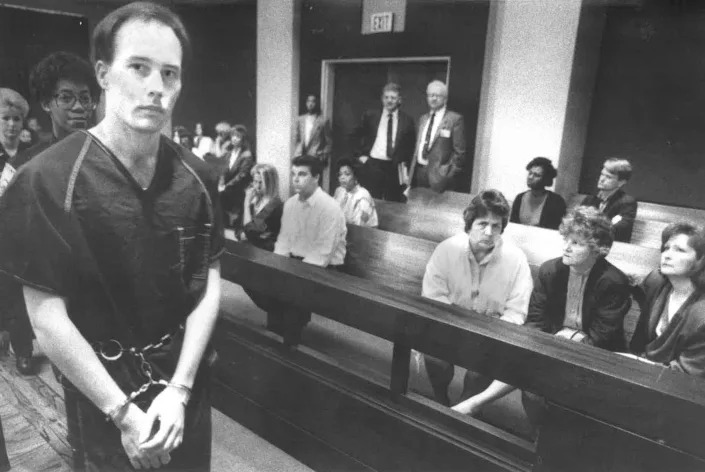WEAKEST LINK
Members of TSSA union vote to accept offers from train companiesAlan Jones, PA Industrial Correspondent
Fri, 24 February 2023

Members of one of the rail unions involved in the long-running dispute over pay, jobs and conditions have voted to accept offers from train companies.
The Transport Salaried Staffs’ Association (TSSA) said its 3,000 members voted overwhelmingly in favour of deals which include a two-year pay rise worth 9%.
The union said it had won an improved deal on pay, as well as commitments on job security and full consultation over any possible changes to terms and conditions following months of industrial unrest.
The union said 80% of management grade staff and 60% of general grade members voted to accept the offers.
The result means the TSSA will formally accept the offers and notify the train companies that ballots for continuing industrial action have been withdrawn.
A TSSA spokesperson said: “This is a clear decision from our members which will end our long-running dispute – something which could have happened months ago had it not been for Government intransigence.
“The incredible resolve we have seen from our members has resulted in a significantly improved pay deal over two years, commitments for no compulsory redundancies, improved opportunities for redeployment, as well as full consultation over proposed reforms to ticket offices and any changes to terms and conditions.
“Thanks to the great commitment of our members across the train companies they have collectively won a better future and can be rightly proud of their actions in this historic dispute.
“We will continue to hold the train companies and the Government to account as we go forward because Britain needs a fully functioning rail network at the heart of our green industrial future, and as a means of rebuilding our economy in the wake of the Covid pandemic.”
Steve Montgomery, who chairs the Rail Delivery Group, said: “This is a positive breakthrough which shows these disputes can be resolved when members are given an opportunity to have their say in a democratic vote.
“TSSA members have sent a clear message that they welcome this fair offer, which means that those on the lowest pay are now eligible for a rise of over 13%, with all grades receiving at least a 9% rise in their 2022/23 pay packets.
“We hope that the RMT leadership will take this opportunity to reconsider their rejection of our equivalent offer, call off their unnecessary and disruptive strikes and allow their members a referendum on their own deal.”
Industrial action has cost the industry around £480 million in lost ticket revenue since June.
The agreement includes a two year pay deal covering 2022/2023 and 2023/2024 with a 5% increase or a minimum increase of £1,750 whichever is the greater in year one and a further 4 % per cent increase in year two.
There will be no compulsory redundancies of employees within the grades affected until December 2024.
The TSSA said it continues to oppose the proposed closures of ticket offices.
The train companies involved are – Avanti West Coast, C2C, Chiltern Railways, Cross Country, East Midlands Railway, Govia Thameslink Railway, Greater Anglia, Great Western Railway, London North Eastern Railway, Northern Trains Limited, South Eastern Railway, South Western Railway, Trans Pennine Express, West Midlands Trains.
A Department for Transport spokesperson said: “The outcome of this referendum is positive news.
“Having been given the opportunity to vote on their own futures, we’re pleased that TSSA members overwhelmingly recognised the benefits of this fair and reasonable pay deal.
“This best and final offer, facilitated by the Government, includes a fair pay rise, no compulsory redundancies and the vital reforms needed to get our railways back on a financially sustainable footing.
“Meanwhile, the RMT’s leaders are still refusing even to give their members the chance to vote on this offer.”
Rail workers union TSSA accepts pay deal rejected by RMT
Chris Price
Fri, 24 February 2023

TSSA union members during a strike on Crossrail last month - JULIAN SIMMONDS
Thousands of rail staff have accepted a pay deal that the RMT union is refusing to put to a ballot of its members, in a move that piles pressure on its leader Mick Lynch.
Members of the Transport Salaried Staffs Association (TSSA) have voted to accept offers by train companies in the long-running dispute over pay, job security and conditions.
The deal accepted by the union's 3,000 members includes at least a 9pc increase over two years, rising to more than 14pc for the lowest paid workers.
A spokesman for the union said: "This is a clear decision from our members which will end our long-running dispute - something which could have happened months ago had it not been for Government intransigence.”
But the Government said: “The outcome of this referendum is positive news. Having been given the opportunity to vote on their own futures, we’re pleased that TSSA members overwhelmingly recognised the benefits of this fair and reasonable pay deal.
“Meanwhile, the RMT’s leaders are still refusing even to give their members the chance to vote on this offer.”
The RMT, which represents 40,000 workers across Network Rail and 14 train operators, rejected the offer this month and instead announced a fresh wave of rail strikes for Thursday, March 16, Saturday, March 18, Thursday, March 30, and Saturday, April 1.
It was widely thought that the union was preparing to agree to a new pay deal earlier this year, only for union hardliners to urge Mr Lynch not to put the terms to a ballot of its members.
Steve Montgomery, who chairs the Rail Delivery Group, said the TSSA backing of the pay deal showed “disputes can be resolved when members are given an opportunity to have their say in a democratic vote”.
"TSSA members have sent a clear message that they welcome this fair offer, which means that those on the lowest pay are now eligible for a rise of over 13pc, with all grades receiving at least a 9pc rise in their 2022/23 pay packets.”
Chris Price
Fri, 24 February 2023

TSSA union members during a strike on Crossrail last month - JULIAN SIMMONDS
Thousands of rail staff have accepted a pay deal that the RMT union is refusing to put to a ballot of its members, in a move that piles pressure on its leader Mick Lynch.
Members of the Transport Salaried Staffs Association (TSSA) have voted to accept offers by train companies in the long-running dispute over pay, job security and conditions.
The deal accepted by the union's 3,000 members includes at least a 9pc increase over two years, rising to more than 14pc for the lowest paid workers.
A spokesman for the union said: "This is a clear decision from our members which will end our long-running dispute - something which could have happened months ago had it not been for Government intransigence.”
But the Government said: “The outcome of this referendum is positive news. Having been given the opportunity to vote on their own futures, we’re pleased that TSSA members overwhelmingly recognised the benefits of this fair and reasonable pay deal.
“Meanwhile, the RMT’s leaders are still refusing even to give their members the chance to vote on this offer.”
The RMT, which represents 40,000 workers across Network Rail and 14 train operators, rejected the offer this month and instead announced a fresh wave of rail strikes for Thursday, March 16, Saturday, March 18, Thursday, March 30, and Saturday, April 1.
It was widely thought that the union was preparing to agree to a new pay deal earlier this year, only for union hardliners to urge Mr Lynch not to put the terms to a ballot of its members.
Steve Montgomery, who chairs the Rail Delivery Group, said the TSSA backing of the pay deal showed “disputes can be resolved when members are given an opportunity to have their say in a democratic vote”.
"TSSA members have sent a clear message that they welcome this fair offer, which means that those on the lowest pay are now eligible for a rise of over 13pc, with all grades receiving at least a 9pc rise in their 2022/23 pay packets.”

















